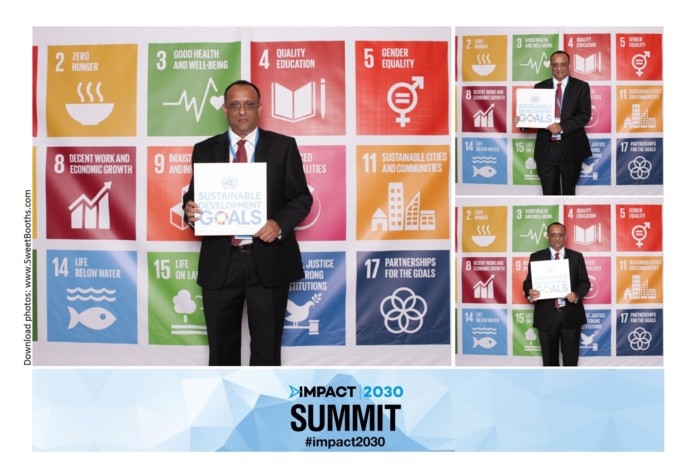Subrahmanyam Ivatury, CEO & Co-Founder of Bengaluru-based Social Convergence, offers advice to executives who are considering joining the social sector about its highs and lows, with Benedict Paramanand, Editor of SustainabilityNext
Purpose of Social Convergence
Social Convergence tries to bring the corporate sector and social sector together for collective social impact. For visible change to happen corporates should compete in the market place and collaborate in the social space. We are currently focused on web technologies, social media & mobile for social impact.
I am also the regional lead for Global Council for IMPACT 2030, which is a private sector-led initiative, in collaboration with the United Nations, social and public sectors, and academia. It’s mission is to activate human capital investments through employee volunteer programs to advance the achievement of the Sustainable Development Goals (SDGs).
Trigger to make the switch from a high profile corporate job to the social sector
It was a well thought out transition but it was not easy in the beginning. I wanted to get out of corporate life after 50. I felt that I could use my skills for greater good especially coming with a good tech background. I try and counsel a number of people who are considering this cross-over.
Take me through the cross-over challenges
At first it’s a hard-landing. Most NGOs are founder-driven, stretched thin on manpower, very low adaptation of technology and high on manual work. Individuals play multiple roles with no clear roles and responsibilities. Founders make most of the decisions; pay is low and is a hard six-day week.
A typical corporate person may come with the romantic idea that he can change everything overnight and then the harsh truth dawns. Change is difficult as in any place and gets doubly more difficult when you are stretched for resources, funds and need to dance to the whims of the donor community. I always say the end of the financial quarter is a great leveler in corporates. Friends and foes come together to meet their targets and goals to report back into their organizations. There is no such thing in an NGO. So how you are doing is more a feeling than actual data.
Dos and Don’ts
Personally I think one should not just jump into an NGO after hearing the founder speak. The best model I would suggest is identify the domain area one wants to work (e.g. health education etc); shortlist a few and narrow down to one NGO. It’s best while one is in the job, to start this process. Then either personal volunteering or corporate volunteering in the target NGO work for about 6 months to a year, build the necessary relationships get comfortable and then decide if it’s the right place for them.
Volunteering as an option
There are number of areas that individuals can add value to an NGO. Joining as an employee is only one of them. Many organizations look at volunteering as an important employee engagement. It is useful for employees to volunteering their time not only for task-based volunteering but also for skill-based volunteering and capacity building within NGO’s. It’s also useful for senior employees to take advisory board positions within NGO and provide guidance, direction and strategy. Finally, once the right NGO is identified financial assistance is always welcome for the NGO.
Will you go back?
A lot depends on what age one get into this. I normally advise a fresher out of college to not look for an NGO job but work in a business. Personally I am very happy and would never have gone back. Part of the reason is that I spent a huge amount of my personal time studying and understanding the social sector and issues.
One of the board members who was interviewing me in my first NGO asked me to write on a piece of paper the exact reason about why I am making a switch from a good well paying, high profile job to an NGO and look at it whenever your chips are down. Trying to focus on the impact you are trying to create is a good way to keep your spirits high.
Meeting the recipients or the beneficiaries gives a real high. No corporate job can give you that. Understanding the founders’ vision and paying a close attention to that will be useful.











Hats off… we are in real need of such volunteers and leaders